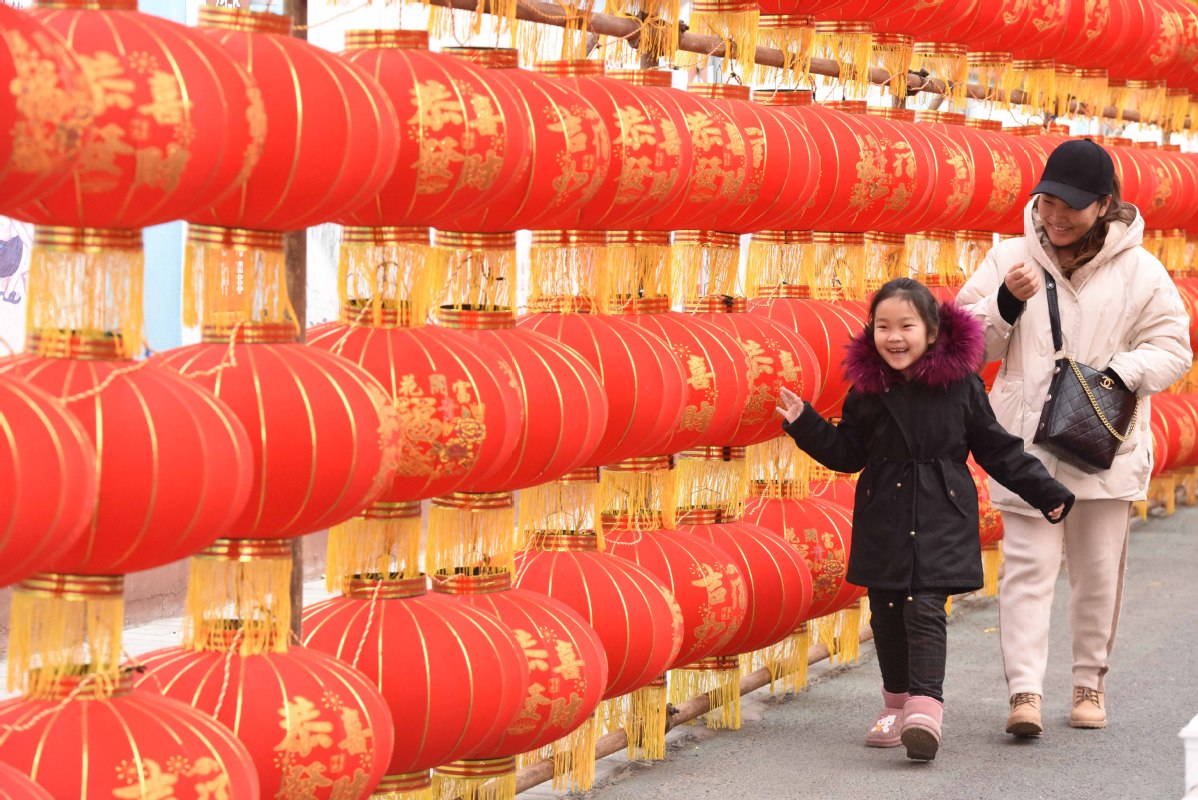Spring Festival: Old spirit, new traditions
By Faisal Kidwai | chinadaily.com.cn | Updated: 2019-01-31 10:29

To mark the new year, people across the world set off firecrackers. For most people, this is just for fun — there's no reason behind the practice. However, when Chinese celebrate their new year with firecrackers there's a story behind it.
The legend goes something like this: A beast named Nian living in the mountains used to attack villages on Lunar New Year and eat everything it could get its hands on, including children. All the villagers were terrified of the animal. Then one day an old man came to them and told them that the beast was afraid of loud noise, the color red and strange things — so the villagers should make loud noises with drums and firecrackers, hang red signs everywhere and use lanterns to scare away the beast.
This is why Chinese people celebrate the new year with firecrackers, the color red and lanterns. And they will do exactly that when they mark the Year of the Pig. The reason why it's the Year of the Pig is because the Chinese zodiac is based on a 12-year cycle, with each year of the cycle associated with an animal, such as rat, goat or rabbit.
Per another tale, the Jade Emperor, ruler of all gods in Chinese mythology, decided to divide time into 12 cycles. He told the animals if they wanted to become one of the 12 animals in the calendar they had to cross a river. When the race got underway, a rat and a cat jumped on the back of an ox and asked the thick-headed ox to give them a ride across the river. But just as they were crossing the water, the rat pushed the cat into the river and jumped off the ox's back to finish first. This is why the betrayed cat still hunts rats and is afraid of water. As for the pig, it came last as it got hungry just when the race started and then felt tired after the meal.
While some traditions have remained the same, others have changed with time. When China wasn't as economically developed as it is now the holiday feast was a big thing, as pork and other animal meats were considered a luxury. But now, with access to everything under the sun, the thought of pork chops or dumplings doesn't sound as exciting as it used to. So while food still plays a big part in the festival, especially the New Year's Eve dinner, the anticipation and excitement has lost some fizz. More and more people are also eating out instead of hosting dinner at home.
Similarly, the tradition of family reunions has changed. Previously, Chinese used to travel to their hometowns to be with their families. Now a growing number of parents are coming from their hometowns to be with their children, dubbed a "reverse Spring Travel rush", or are going on excursions either abroad or inside the country. This year, more than seven million Chinese are expected to travel overseas during the holiday.
This change is driven by many factors. Apart from economic shifts, a big factor is single people come under tremendous pressure during the holiday regarding their single status. Their relatives ask them so many questions about marriage and dating some are avoiding these reunions completely. As if that weren't enough, there are questions about their salary and whether they have bought property.
However, despite these changes, Spring Festival remains the most important holiday for Chinese. For younger generations it's a chance to get away from work and studies, while for older people it's an occasion to spend time with children and grandchildren. Some things have changed, but the spirit is the same.
The author is a journalist with more than 18 years experience in media.
The opinions expressed here are those of the writer and do not necessarily represent the views of China Daily and China Daily website.
























